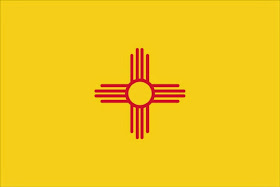"Enchantment" means of or having a magical influence or characteristic, but New Mexico isn't sure work comp the value and relevancy of workers' compensation is so enchanting - at least not the state's agricultural industry.
New Mexico farmers and ranchers have, so far, not been required to purchase workers' compensation insurance but pressure is on the agricultural sector to step up and participate.
At issue is whether the district court ruling in Griego et al. v. the New Mexico Workers' Compensation Administration applies to the three injured workers in that case alone, or to all agricultural workers in the state.
Bernalillo County Judge Valerie Huling ruled that the provision of New Mexico statute 52-1-6(A), excepting farm and ranch workers from the workers' compensation coverage requirement, violated the state constitution's equal treatment clause.
But Huling said in her decision that she didn't have the authority to hold workers' compensation judges and the state's Uninsured Employers Fund to her ruling because they are separate entities from the Workers' Compensation Administration.
Two pending cases in the state Court of Appeals, where injured agricultural employees have sued their employers for not providing workers' compensation coverage, may answer that question.
The cases - Rodriguez v. Brand West Dairy and Aguirre v. M.A. & Sons Chile Products - are dividing labor and business.
New Mexico Center on Law and Poverty Staff Attorney Maria Sanchez told WorkCompCentral that the Greigo ruling is applicable statewide, and not just as to the three workers in that case.
Sanchez said her law center plans to file an injunction for Huling to extend the decision at least to the UEF.
 |
| Land of enchantment? |
"Simply stated, the employer and UEF were not parties to the Griego litigation and, therefore, are not bound by that decision," the brief reads. "Employer and UEF were not parties to the Griego litigation and did not have the opportunity to be heard by Judge Huling in regard to the issues resolved by Judge Huling's opinion and in regard to the issues presented by this WCC."
The amicus brief also argues that administrating the workers' compensation insurance requirement for farm and ranch workers would be burdensome and costly to the system – particularly because of the challenges of working with agriculture employees who move frequently.
"If the worker is moving around regularly, where should the injured worker be provided medical care and treatment, i.e., at or near the town/city where the accident happened or at different location(s) where the injured worker may be living throughout the life of the claim?" amici say.
A lot of states have already dealt with migratory workers and the fact that when, where and by whom should a worker get treatment has not impeded mandatory coverage.
The real issue in my mind is not whether workers' compensation should be mandatorily imposed on all employers, but whether business finds value in the coverage.
Clearly, those ranchers and farmers that support the amicus filing don't believe that workers' compensation is of any benefit to them - but we have seen that before: business doesn't value the exclusive remedy of work comp until they get sued civilly and have to make good on a big judgment not covered by any insurance.
Just as clearly, the migratory farm workers, those at the relative bottom of the food chain in the economy, do find value in the protections of work comp. New Mexico's system is vastly more simple than big state systems so the deterrence to filing a claim and seeking benefits isn't as looming.
According to a Wikipedia entry, cattle, sheep, and other livestock graze most of the arable land of the state throughout the year and based on 2004 tax receipts the agricultural industry is the 20th largest grossing business sector, with about $72 million in taxable revenue.
Gross business taxable receipts for the state in 2004 were about $39.5 billion, so realistically agriculture is only about 0.18% of the total economy of the state - but the issue is whether workers in that small sector are entitled to the same protections as a worker in mineral extraction ($1.3 billion in receipts) or retail ($12 billion).
Obviously we in the industry find relevancy and value in work comp because it's how we make our living. Does the rest of the world see it that way? Oklahoma, Texas, and perhaps New Mexico may not.
No comments:
Post a Comment